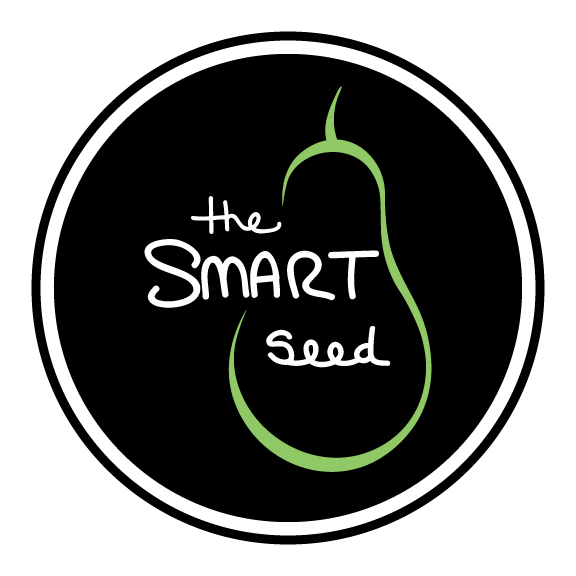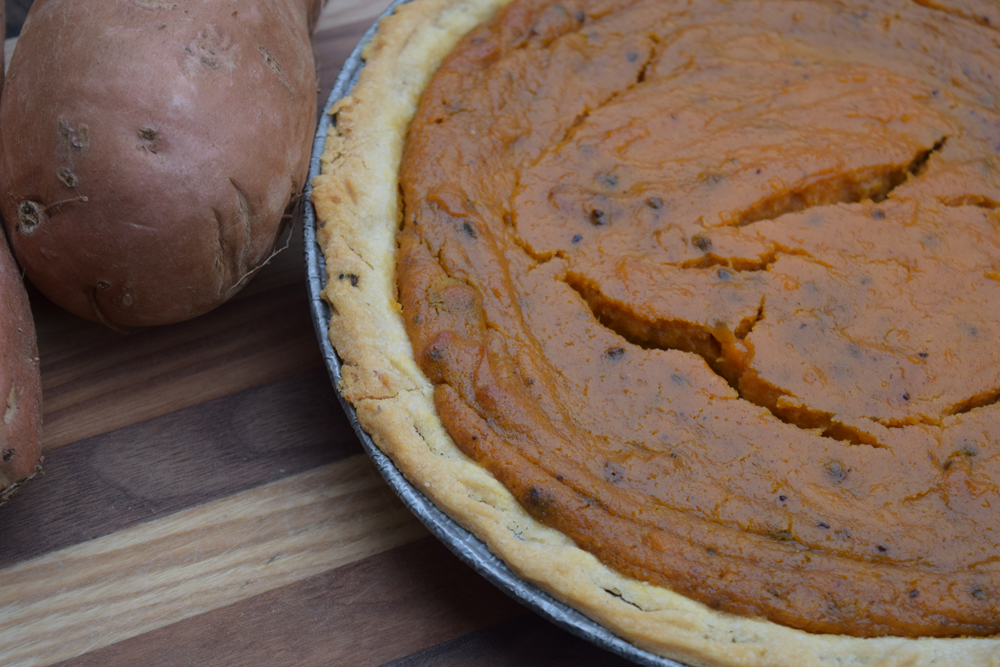Podcast: Play in new window | Download (Duration: 10:38 — 11.3MB) | Embed
Subscribe: Apple Podcasts | Android | Email | Stitcher | RSS | More
If you’ve ever had the pleasure or misfortune of getting stuck in a conversation with me, you might notice one thing. I most always say, “Well, I think.” or “Well, I’m pretty sure.” I don’t tend to talk in certainties. It may be because I am more concerned about being wrong rather than being right. My belief system is a perfect example of my ambivalence. “Is there a God? Maybe?” I wouldn’t want to completely discount it. Either way, the day I finally find out the answer to that question no one will be able to say that I was entirely wrong. I just hedged my bets. And then in one scenario I will definitely be sent to purgatory.
This maybe surprising, but working in the food industry has pushed me to double down on my “Well, I think” and “Well, I’m pretty sure.” It is an intentional pushback against all of those fellow co-workers and customers who over the years have talked in absolutes. GMOS. Bad. Vaccines. More Bad. Bone Broth heals everything. Reishi Mushrooms cures cancer. Absolutes that always seem to be based on anecdotes and not scientific consensus. Perhaps, for those of us who are not doctors or scientists should be a bit more humble in our certainties when it comes to areas where we have no expertise. For sure, I am not completely immune to the random moment of righteousness. A couple of years ago, after I moved back to my home province of Ontario and started a new job I found myself on the wrong side of a pesky, yet not an inconsequential debate. What is a sweet potato? And, what is a yam? For my new co-worker, the orange skin and orange flesh elongated root was a sweet potato. For me, it was a yam. I explained that I was a produce queen. I had spent the last three years knee deep in organic produce splendor. Sunchokes, kiwi berries, burdock, broccoli leaves, passion fruit, persimmon, you name it I’ve tried it. With a few caveats. I gently explained, perhaps, with a bit of a condescending tone that I had already had the yam / sweet potato conversation with a produce distributor, and that they explained that the yam was the orange skin and orange flesh root, and that the sweet potato was the purple skin white flesh root. So, yeah, my apologies, but I’m right. Well, I was wrong. Which brings us to this week’s episode: The Unfortunate Case of the Sweet Potato and Yam Debacle.
You know once in awhile I wonder if the time and money I put into my English Degree was worth it, and then more often than you would think as I do research on my next podcast a book will come up, and I say to myself, “Wait a minute. I’ve read that book. I have that book. That book is upstairs.” This was one of those times. The book is called, “Things Fall Apart” and the author is Chinua Achebe. Now, let’s be clear I remember precious little about this book other than the fact that I liked it. That goes with pretty much every single novel I read throughout my university career. Robertson Davies was my favourite author. Why? I don’t remember. In “Things Fall Apart,” which is set in Nigeria, there is a chapter that describes “The Feast of the New Yam.” In the book, the festival is held every year prior to the harvest, to honour the earth goddess and the ancestral spirits of the clan. The festival marked the season of plenty and a new year. Old, shriveled up, fibrous yams would be disposed of, for the new year must begin with new, fresh yams. Needless to say, spiritually and culturally, the yam is interwoven into West African culture. A variant of the word “yam” in some tribes actually means “to eat.” So, yeah, if it’s synonymous with the act of eating then it must be important.
The yam is a tuber, similar to a potato. And, a tuber, is basically a storage vessel that grows from the root system to then create another plant. A sweet potato is a root. They are not related. The yam originated in West Africa and Asia, and the sweet potato came from South America. So, if they came from different parts of the world and are not related then when and why does this collision occur? I was reading this handbook written in 1921 called, “The Sweet Potato: A handbook for the practical Grower” and within the handbook the author lists the many different types of sweet potatoes. The sweet potato plant is prone to mutating so there were a lot of varieties and subsequently a lot of confusion over whether there was any differences between certain varieties or whether some sweet potatoes still existed at all. Amongst the extensive list of sweet potatoes was one variety called the “N-word” killer or “N-word”choker. It had purplish skin, and as the author writes, “the whitesh flesh of any potato.” The quality was poor, and was mostly given to livestock to consume. Needless to say, this is one fucked up sweet potato. Yet, it gives us one big clue into where and how this confusion between the sweet potato and the yam began. The location is the southern United States and the way is American slavery. Also, it gives insight into who, at the time, felt they had cultural ownership over the sweet potato and who perhaps is to blame for the confusion — white people.
It is thought that the relationship between the sweet potato and yam occurred when Africans were enslaved and forced to move across the Atlantic to America. They arrived with their language, but not the yam, and they were given sweet potatoes to eat. Whether they intentionally substituted the word “yam” to refer to the sweet potato or were using a variant of the word “yam” to just simply imply that they were eating,the white people around them heard the word “yam” and said, “Ahh, they are talking about the sweet potato.” However, for the white people, there was no real confusion, a sweet potato was a sweet potato was a sweet potato. It had been apart of their diet since the time of Christopher Columbus, whether they resided in Europe or the Americas. Just because they were eavesdropping on Africans doesn’t mean they automatically thought, “Shit, maybe we’ve been calling it the wrong word after all.” No, if white people were going to create a little food chaos it wasn’t going to come from a place of humility and an idea that they were wrong. Instead, it was going to come from a place of opportunistic advantage.
As noted before there were a lot of different varieties of sweet potatoes. Some were white, purple, orange, or yellow. In the 1920s or 1930s the Louisiana Agricultural Experiment Station released a new type of sweet potato. This new sweet potato had orange skin and was deliciously moist, and it became popular. Soon it’s popularity spread into areas that prior to had been dominated by a more dry, white fleshed sweet potato. Louisiana wanted to make sure consumers knew the difference. So, in 1937 the Louisiana Sweet Potato industry coined the word “yam” as a national marketing campaign to differentiate their sweet potato from the rest, and it is at this time that our modern day confusion over what is a yam and what is a sweet potato began.
I find the origins of the “What is a sweet potato? And, what is a yam?” debacle a bit unnerving and deeply unfortunate. To confuse the yam, which in most respects is an important aspect of West African culture, to a sweet potato, which in a way, like cotton, could be seen as a symbol of American Slavery does a great disservice to the former. It is just one example of how white culture had co-opted something that is not theirs only to suit their own gains and ambitions. Yet, time is a wondrous thing. As the yam is important to West African culture, the sweet potato is now important to African American culture. African Americans have taken a root, that in a way can embody a history of violence and turned it into something that is theirs. During Thanksgiving in many African American households you would be served sweet potato pie rather than pumpkin pie. Which by the way, I’ve just recently tried and believe that it is the superior pie. Yet, what does it say about us and our own culture that we still allow this debacle to go on? That many industry insiders still choose to label a sweet potato a yam? Is it right for us to take a word from another language and another culture and use it for our own means? Or, if we completely corrected the mix-up would we then be erasing a part of history. Perhaps, the fact that some sweet potatoes are still called yams is a little reminder to us of the systemic issues that have affected our past and present. Regardless, it’s about time we all knew that when we walk into our big box grocery store we’re looking at a sweet potato and not a yam, and I’m very certain about that one.

